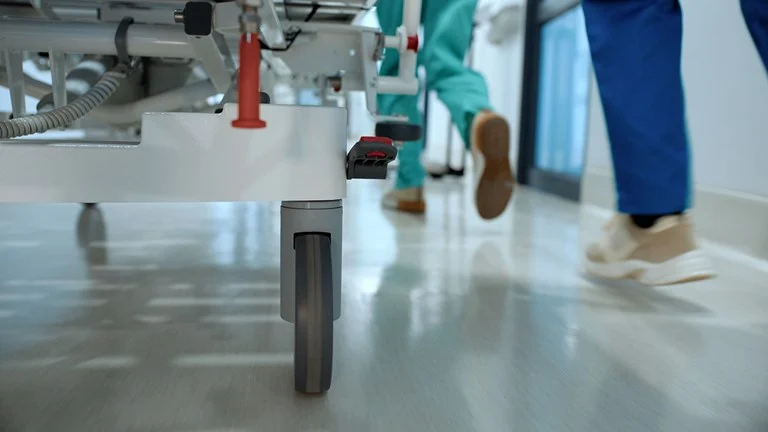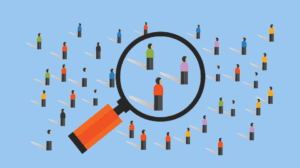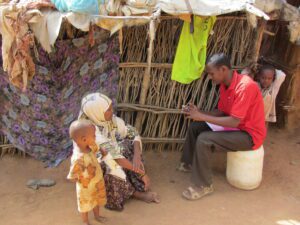Introduction
Healthcare delivery in rural Uganda remains a challenge, with vast disparities between urban and rural healthcare services. Rural communities often suffer from a lack of infrastructure, medical professionals, and accessible health services. Fortunately, other countries have developed innovative healthcare models that Uganda can adopt to improve care in these regions. A critical part of implementing these models effectively is research data collection in Uganda. This data can inform and shape healthcare initiatives, ensuring they meet the unique needs of Uganda’s rural population.
The Role of Research Data Collection in Uganda’s Healthcare System
Research data is the backbone of any successful healthcare system, allowing for evidence-based decisions and policies that can lead to better outcomes. In Uganda, data collection can help identify gaps in healthcare delivery, monitor disease trends, and evaluate the effectiveness of implemented strategies.
However, research data collection in Uganda faces challenges like limited resources and inadequate infrastructure, particularly in rural areas. By investing in data collection tools and strategies, Uganda can improve its healthcare systems and address these gaps.
Case Study 1: Brazil’s Community Health Worker Model
Overview of Brazil’s Healthcare System
Brazil has a well-established healthcare system that heavily relies on Community Health Workers (CHWs) to reach underserved populations. These CHWs are vital in providing preventive care, educating communities, and acting as a bridge between healthcare providers and rural communities.
How Community Health Workers Operate in Brazil
CHWs in Brazil go door-to-door, monitoring patients’ health, providing vaccinations, and offering basic medical advice. This model ensures that people living in remote areas still receive essential health services, even when healthcare facilities are not nearby.
Benefits of the CHW Model for Rural Uganda
Uganda can greatly benefit from adopting a similar model. With proper training and support, CHWs could provide much-needed care in rural areas, where healthcare facilities are scarce. This model would also create jobs within these communities, helping to reduce unemployment while improving health outcomes.
How Research Data Collection in Uganda Can Optimize CHWs
For this model to be successful, research data collection in Uganda is essential. Data can help identify which areas require the most attention, the specific health needs of various communities, and the effectiveness of CHWs in providing care. With this information, healthcare resources can be allocated more efficiently, ensuring that the areas in most need are prioritized.
Case Study 2: India’s Mobile Health Clinics (mHealth)
Overview of India’s mHealth Clinics
In India, mobile health clinics (mHealth) have revolutionized healthcare in rural areas. These clinics are equipped with medical supplies and healthcare professionals who travel to remote communities, offering basic medical services, diagnostic tests, and telemedicine consultations.
Impact of Mobile Health Clinics in Remote Areas
India’s mHealth clinics have significantly reduced the burden on overstretched hospitals and provided timely medical care to people who would otherwise go untreated. This model has improved maternal and child health, reduced mortality rates, and provided critical services like vaccinations and disease screening.
Applicability of mHealth Clinics for Rural Uganda
Mobile health clinics could be a game-changer for Uganda, where rural communities often lack access to healthcare. These clinics could deliver essential services such as prenatal care, vaccinations, and disease prevention to Uganda’s remote regions.
Leveraging Research Data Collection in Uganda for Effective Mobile Clinics
Like the CHW model, research data collection in Uganda is critical for the success of mobile health clinics. Data can help determine where the clinics are most needed, track the health trends in rural areas, and measure the effectiveness of these clinics. This approach would allow healthcare services to be tailored to the specific needs of Uganda’s rural population.
Key Benefits of Adopting Best Practices in Uganda
Improved Healthcare Access
By adopting the CHW model and mobile health clinics, Uganda can dramatically improve healthcare access for its rural population. These models bring healthcare directly to the people, bypassing the challenges of distance and limited infrastructure.
Tailored Solutions Based on Data Insights
Through effective research data collection in Uganda, healthcare providers can understand local health trends and challenges, allowing for more targeted and effective interventions.
Importance of Localized Data Collection for Effective Implementation
To ensure that these healthcare models work effectively, localized data collection is crucial. Understanding the specific needs, diseases, and conditions affecting rural Ugandans will help in customizing the healthcare delivery models for maximum impact.
Overcoming Challenges in Research Data Collection in Uganda
Infrastructure and Technology Gaps
One of the major hurdles in research data collection in Uganda is the lack of infrastructure, especially in rural areas. Addressing this challenge requires investment in technology, such as mobile data collection tools and better internet connectivity.
Training and Capacity Building for Data Collectors
Data collection is only as good as the people collecting it. Uganda must invest in training healthcare workers and CHWs to collect high-quality data. This will not only improve the accuracy of the data but also ensure that healthcare interventions are based on solid evidence.
Tools and Methods for Effective Data Collection
Use of Digital Health Tools
Digital tools, such as mobile health apps and online databases, can help streamline research data collection in Uganda, making it easier to gather and analyze health information in real time.
Partnerships and Collaborations with Global Entities
Uganda can benefit from collaborating with international health organizations to access the latest tools and technologies for data collection. These partnerships can help bring expertise and resources to Uganda’s healthcare system.
Building Capacity for Research Data Collection in Uganda
Importance of Training Programs
Uganda should focus on training healthcare professionals in data collection methodologies to ensure the quality and consistency of healthcare data across the country.
Involvement of Local Communities
Encouraging community participation in data collection efforts can improve both the quantity and quality of the data. Locals often have insights that external data collectors may overlook, making them valuable contributors to the process.
Successful Examples of Research Data Collection in Uganda
One example of successful data collection efforts in Uganda is the work done by a feasibility study company in Uganda. Their ability to gather accurate and actionable data has significantly impacted the decision-making process for healthcare projects, leading to better outcomes for rural communities.
For more on feasibility studies, visit Feasibility study company in Uganda.
Steps Uganda Can Take to Adopt Best Practices
Government Policy and Investment
The Ugandan government must prioritize healthcare in rural areas by investing in models like CHWs and mobile health clinics.
Engaging Local Healthcare Providers
Collaboration between local healthcare workers and global organizations can help bring new ideas and resources into Uganda’s healthcare system.
Encouraging Partnerships with International Organizations
Forming partnerships with international health organizations can provide Uganda with the financial and technical support needed to implement best practices in healthcare delivery. List of Interntional NGOs
Conclusion
Uganda has the opportunity to revolutionize healthcare delivery in its rural areas by adopting proven models from other countries, such as Brazil’s Community Health Workers and India’s mobile health clinics. For these models to be successful, robust research data collection in Uganda is essential. By investing in data-driven healthcare, Uganda can create tailored, effective interventions that improve the lives of its rural citizens.
FAQs
- How can research data collection in Uganda improve healthcare delivery?
Research data collection allows Uganda to make informed decisions based on evidence, improving healthcare planning and outcomes. - What are some challenges Uganda faces in collecting healthcare data?
Challenges include inadequate infrastructure, limited technology in rural areas, and a shortage of trained data collectors. - Why are community health workers important for Uganda’s rural healthcare?
CHWs bring essential healthcare services directly to rural communities, improving access and promoting preventive care. - What role do mobile health clinics play in rural healthcare systems?
Mobile health clinics provide healthcare services to remote areas, ensuring that people who live far from health centers still receive care. - How does Uganda benefit from using global healthcare best practices?
By adopting proven healthcare models, Uganda can enhance its healthcare system, reduce disease burden, and improve overall health outcomes for rural populations.






